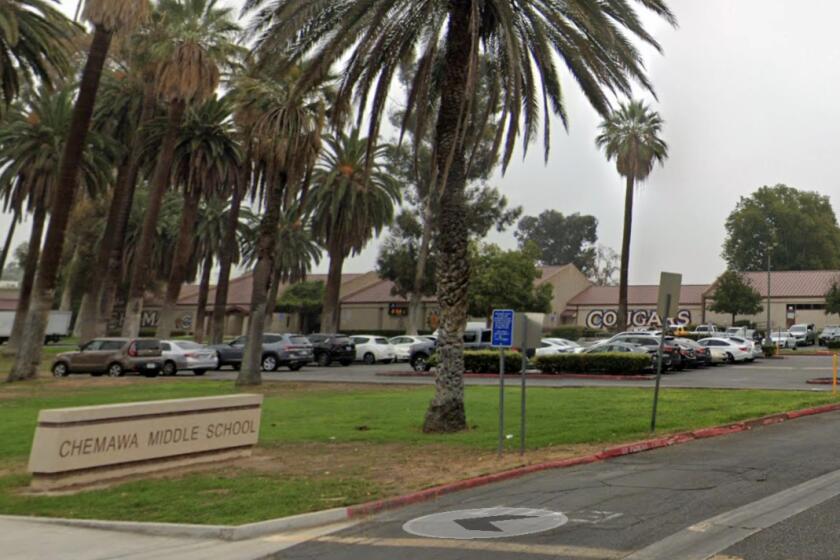Grading AP programs
Re “Breaking free,” May 8
Tom Stanley-Becker wrote a good critique of institutional education in general. The pace of learning is determined by forces outside the classroom. Unfortunately, most of us must attend such institutions throughout our lives, whether in grade school, high school, college or beyond. In this context, his specific criticism of the Advanced Placement program seems misplaced.
AP classes should be more demanding and faster paced. Deadlines are important in college too.
It is true that most students at elite college-prep schools do not really need the AP program -- most will be attending a college of their choice supported by substantial family resources, whether or not they take and pass any AP exams.
However, for many of my students, many of whom are first-generation high school graduates, taking an AP course helps to open up opportunities and prepare them for college.
Being involved in the AP program, even if they don’t pass any exams, has made a significant difference in the lives of many of my students.
Eric Mulfinger
Pasadena
The writer is the AP coordinator at Marshall Fundamental Secondary School.
--
Congratulations to The Times for printing an Op-Ed article about the educational merits (or not) of the AP testing program that was written by an actual student. And congratulations to the articulate young Stanley-Becker for having the wisdom to abandon test preparation in favor of substantive scholarship.
In the current climate of frenzy around college application “resume building,” it takes real courage for a student to opt out of the academic Iditarod of APs and to choose more authentic and personally meaningful intellectual inquiry instead.
Roger Weaver
Santa Monica
The writer is the headmaster of the Crossroads School.
--
I applaud Stanley-Becker for bringing up this topic, as it affects so many students. However, I have a hard time considering him an AP dropout. He did not drop out of the AP U.S. history class because he felt it was too test-centric. He just opted out of the test.
Even though many students, including me, dislike focusing on the test and not on the history, usually the alternative is being in a regular U.S. history class with textbooks and material that are too easy for college-bound juniors. Not to mention classmates focused on the AP spitball test. The truth is that there are few good options for students interested in learning for the sake of learning in high school.
AP classes and the accompanying tests are our best options for both keeping our intellectual interest alive and showing that interest to colleges. And yes, I am taking the AP U.S. history exam.
Karenina Rojas
Oxnard
The writer is a junior at Oxnard High School.



